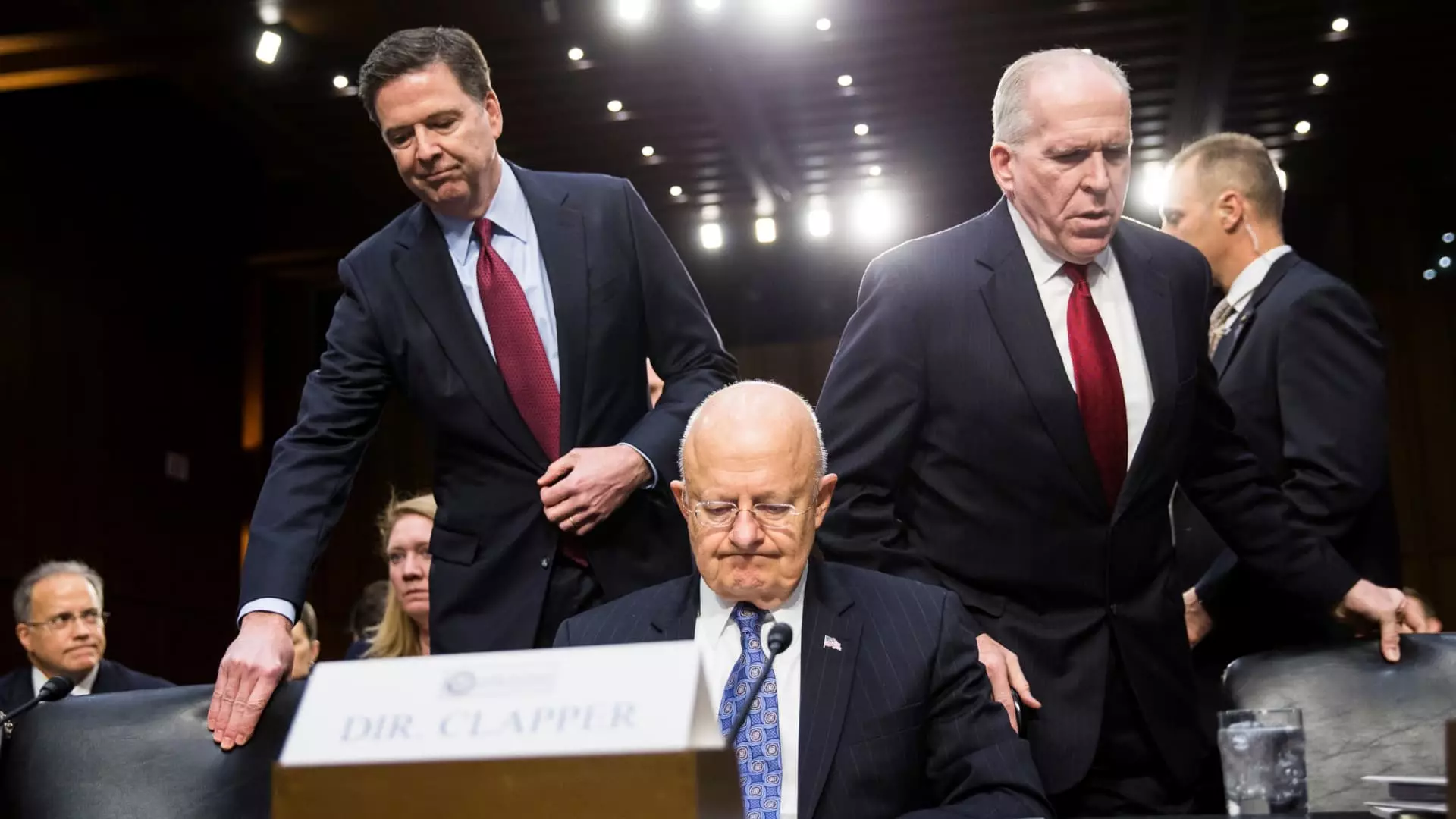In recent times, the justice system appears increasingly compromised, turning into a tool for political retribution rather than a bastion of impartiality. The ongoing investigations targeting figures like John Brennan and James Comey, both of whom played pivotal roles during the Trump era, exemplify a perilous shift. When agencies responsible for upholding the rule of law become embroiled in intra-political battles, the core tenets of justice—neutrality, fairness, and integrity—are eroded. Such investigations, shrouded in ambiguity and selective focus, threaten to undermine public trust and threaten the foundational principles that safeguard democracy.
The Orchestrated Targeting of Prominent National Security Figures
The focus on Brennan and Comey seems less about justice and more about political theater. Both men, involved in highly sensitive and complex investigative processes, have essentially become scapegoats in a broader strategy to rein in perceived political adversaries. The fact that Justice Department officials refuse to disclose specifics about what exactly is being scrutinized suggests an intent to intimidate or blackmail, rather than to seek truthful resolution. It is troubling that these investigations come amidst lingering questions about the legitimacy and independence of law enforcement agencies, which should serve the public interest—not partisan agendas.
Selective Investigation and the Erosion of Accountability
While these investigations garner headlines, they appear to selectively target certain individuals based on past political affiliation or association, rather than concrete, law-based evidence. This selective scrutiny raises serious questions about the true motives behind these probes. Meanwhile, other past actions of political figures—especially those directly connected to government leadership or Trump’s opponents—are often overlooked or dismissed. This inconsistency fosters a climate of cynicism where justice is perceived to be biased and arbitrary, ultimately undermining the integrity of legal institutions and empowering a culture of impunity.
The Double Standards in Handling Sensitive Cases
The recent handling of the Jeffrey Epstein case underscores the troubling double standards at play. High-profile investigations connected to Epstein’s questionable death and the alleged existence of incriminating lists have been criticized for their perceived lack of transparency and accountability. Yet, investigations into Brennan and Comey seem driven by motives beyond justice—possibly attempts at political damage control or personal vendettas. These inconsistencies feed a narrative that the legal system is more committed to political agendas than actual truth, further fueling distrust among the populace.
The Broader Implications for Democracy
This pattern reflects a dangerous trend: justice is increasingly weaponized for political advantage. When investigations targeting former officials become tools to settle political scores, democracy suffers. It sends a chilling message to citizens and public servants alike—professionalism and integrity are secondary to partisan warfare. Such climate encourages cynicism, diminishes institutional credibility, and fosters division. A healthy democracy must be rooted in accountability that transcends political loyalties, yet what we see now is a partisan battlefield disguised as a legal process.
The Need for Genuine Reform and Vigilance
To protect the essence of justice and restore faith in our institutions, serious reforms are essential. The investigation apparatus must be insulated from political influence and operate transparently. Public discourse needs to scrutinize the motives behind high-profile investigations, demanding clear, evidence-based reasons rather than vague allegations designed to serve a partisan agenda. Only by reaffirming the independence of legal processes can America begin to repair the fractures that threaten its democratic foundations.
The ongoing investigation saga exemplifies a troubling convergence of politics and law, where justice appears less like a pursuit of truth and more like a tool for a broader political strategy. Such a landscape endangers not only the individuals targeted but also the very fabric of a free, fair society based on the rule of law and equal treatment under the law.


Leave a Reply